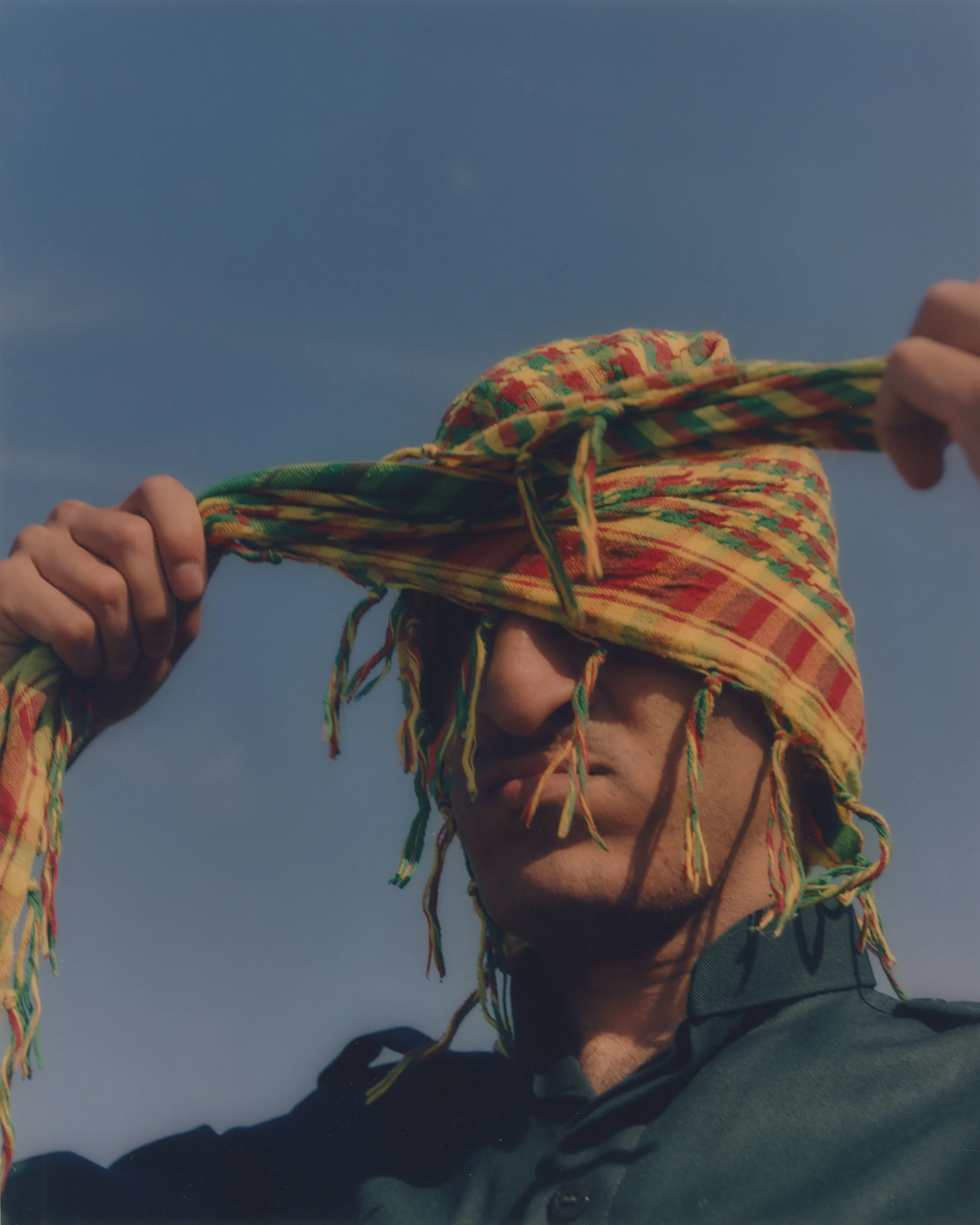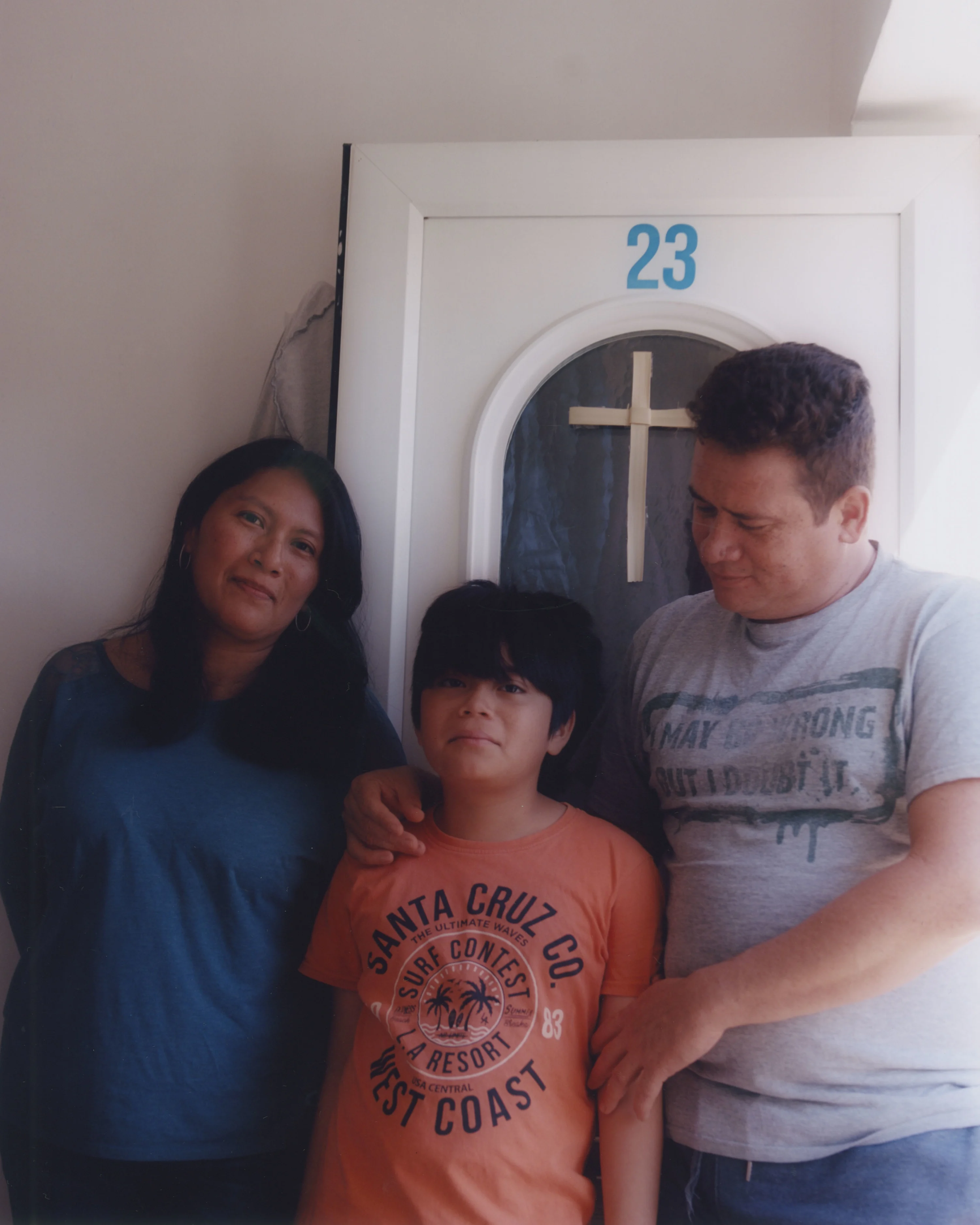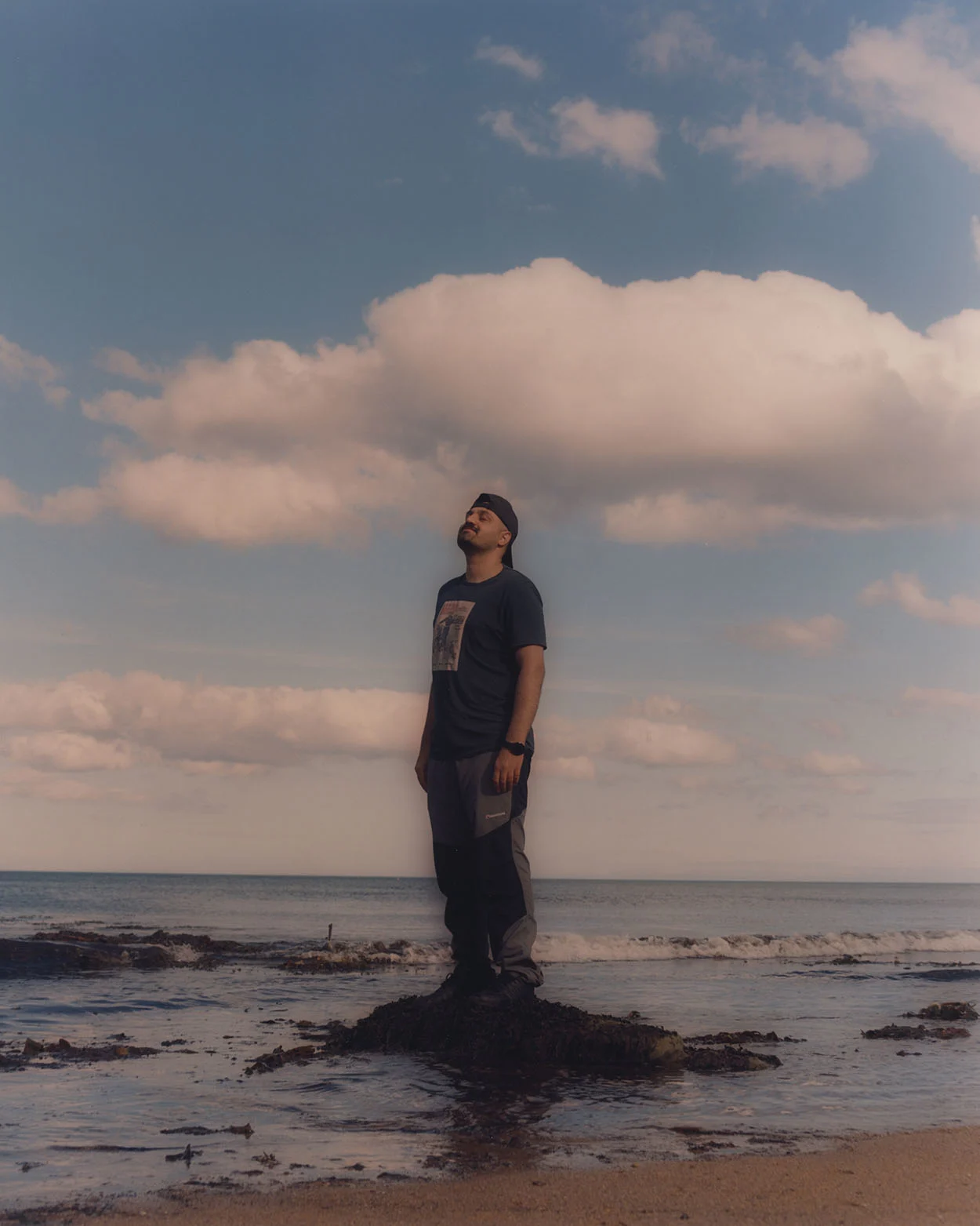
In the summer of 2022, frustrated by the biased opinions of the media towards those seeking asylum in the UK, Jamie Sinclair journeyed back to his hometown of Ashington, Northumberland, to tell a different side of the story. He spent time with the Northumberland County of Sanctuary—set up to welcome refugees and asylum seekers who were being sent to North East England to live—and the resulting project, “Hjem,” paints a profound and poetic picture, not only of those seeking asylum, but also of the hospitality and kindness of the communities welcoming them with open arms.
Watch the full film exclusively on WePresent below.

In the summer of 2022, Jamie Sinclair returned to his hometown of Ashington, Northumberland. For three months he lived out of his car, enjoying the generosity of new and old friends, documenting their time and making a film: Hjem.
It’s pronounced “yem”—a nordic word that remains deeply entrenched in Northumberland dialect. “It’s how we say ‘home’ where I’m from,” Jamie explains, “that’s why I really like ‘hjem’ for the name of the project, because it’s a foreign word, but it’s home, and our local dialect.” In the past Ashington was one of the largest coal mining towns in Europe which saw people from all over the continent move there to live and work. The miners created their own dialect to use in the coalpits, Pitmatic (originally: Pitmatical or colloquially Pityakka). “This is what I like about being where I'm from,” Jamie says, “there are people there who get to learn our culture, and we get to learn theirs.”


His directorial debut features refugees, asylum seekers and local volunteers, but really it’s a film about hospitality and kindness, showing people creating joy and looking forward to the future rather than being asked to focus on the past: “I found it really interesting throughout the project,” Jamie remembers, “when I would talk to other people about it, everyone would be like ‘so where are they from? How did they get here?’ and I'm like, ‘to be honest mate, I don’t really know and I don’t really care.’”
Under UK law nearly all asylum seekers are disallowed from working (relying on state support of as little as £6.43 a day), so Jamie re-lived his childhood summer holidays, but with new friends: trips to the beach and birthday parties—cooking and sharing meals around different tables, and viewing his own culture and place of origin with fresh eyes. Nothing about Hjem feels sensational, its lens choosing to celebrate the ordinary, and the value of community—“that side of life that we all have and take for granted” says Jamie, “just knowing people.”
Being curious and connecting with people is the axis for all of Jamie’s work—combined with real gratitude at having been let into someone else's world: “I’m a narrator,” he says, “and the beautiful thing about modern society is that there are so many ways to tell a story…I’m finally cracking that egg open.” For his series “Digging Out,” an overheard conversation in an aisle of Marks & Spencers led to weekly meals with Brendan (2 for Tuesdays, buy one get one free pizzas at the Black Swan) for a year, and a profound friendship that went far beyond the project. Jamie, who was homeless at the time, then got invited to tour with a dance company, taking ballet to working class communities around the UK, and moved south. When Brendan passed away not long after, his daughter wanted to find Jamie—she knew where he had studied and approached the tutors. When she described her Dad, and the work they had made together, they all knew exactly who she meant: “that’s Jamie.”



Bored of the negative press surrounding refugees and people seeking asylum, Jamie went to Calais after graduating in 2015: “I just thought, I wanna go and meet them and learn about these people myself from my own experience—I met so many beautiful people!” he says happily. “It was really eye opening to see how kind everybody was, the hospitality, and I learnt a lot about their experiences.” Afterwards he set up a charity with some friends, to raise money, cross the Channel, and use it to build shelters for people.
It was by chance that he learnt of the Northumberland County of Sanctuary (NCOS) five years later, set up to welcome refugees and asylum seekers who were being sent to North East England to live. He couldn’t picture it, the scene at odds with his own stereotypes of the Northern working class. He reached out to NCOS straight away, but it took years and a few rounds of failed funding applications before Jamie could create with them what he wanted to. After receiving a grant from Arts Council England and winning the 2022 Rebecca Vassie Trust memorial award he went back to his hometown to meet the volunteers he had read about and the people they work with.
The 11 minute film is shot with a combination of super 8, phone footage, mini DV tapes and digital interviews, and the result is nostalgic and intimate. The interviews would come later, after a summer spent together armed with cameras and little else: “I didn't have a shot plan” he says, “I embed myself within the communities or the people that I work with…I just catch life spilling out in front of me.” The film is warm like Jamie, full of gestures and heart—a story of people sharing and learning from one another. “The last thing I want to do is take advantage of anyone,” he reflects, “I will never be that photographer or documentarist who bulldozes in and then leaves. I have to live the experience and feel like I have given in order to take…hopefully that shines through.”

“In the UK refugees and asylum seekers are seen as the problem—they’re so dehumanized by the media, they have no face…they’re the small boats coming,” Jamie says. In a society intent on creating a hostile environment, people seeking refuge are portrayed as a threat to be feared, or victims to be pitied, without anything in between. “That’s what felt important, just to humanize, to show their faces and personalities—the everyday,” he adds.
In the end Jamie felt like he learnt as much about his own community as anyone else's and it made him really proud. He hopes this will inspire other cities and counties to create places of sanctuary—a hub or a drop in where people can go to be seen and heard and get some useful information: “It's as simple as that” he says, “it's such a simple concept but it goes such a long way. If you were ever left in a foreign country, you’d love it if there was somewhere to go wouldn’t you?”

